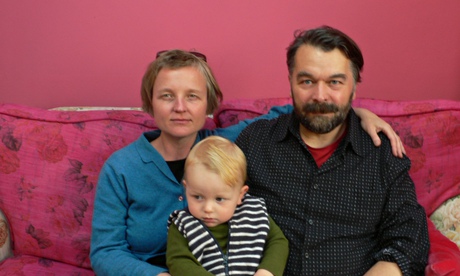
From artist Marion Coutts's searingly honest account of her husband's death from a brain tumour to Helen Macdonald's story of how she tamed a goshawk after her father died, memoirs dominate the longlist for the Samuel Johnson prize this year, in a line-up which the acclaimed biographer Claire Tomalin said shows "that non-fiction is certainly stranger and wilder than fiction".
Tomalin, chair of this year's judges, unveiled the 15 titles making up the longlist for the UK's most prestigious award for non-fiction on Tuesday. The Samuel Johnson has never before been won by a straight memoir, but this year six out of the 15 longlisted books are personal stories, with John Carey making the cut for The Unexpected Professor, the esteemed critic's account of his life in books, and Henry Marsh for Do No Harm, about his life as a neurosurgeon. Musician Ben Watt was longlisted for his chronicle of the life of his parents, Romany and Tom, and Jonathan Meades – described by one reviewer as "a sort of apocalyptic John Betjeman" – for An Encyclopaedia of Myself.
"I was hoping for some surprises, and the biggest one is that my fellow judges and I have chosen more memoirs for our longlist than any other type of book – six out of the total of 15 – and just one biography [John Campbell's, of Roy Jenkins]: all human life is here," said Tomalin.
Coutts's The Iceberg, already longlisted for the Guardian first book award, sees her write of her husband Tom Lubbock's last months: "Spring. There is going to be destruction: the obliteration of a person, his intellect, his experience and his agency. I am to watch it. This is my part." Macdonald's H is for Hawk also deals with death – that of her father, and of the goshawk, Mabel, she buys for £800 and sets out to train. "As the days passed and I put myself in the hawk's wild mind to tame her, my humanity was burning away," Macdonald writes, in a memoir which has garnered her the highest of praise from reviewers.
The judging panel also picked the Guardian's Nick Davies's account of the phone hacking scandal, Hack Attack, Jessie Childs' look at the predicament of Catholics in Elizabethan England, God's Traitors, surgeon Atul Gawande's Being Mortal, a look at death and dying, and Greg Grandin's investigation into a slave rebellion, The Empire of Necessity. The longlist is rounded out by Alison Light's detailing of her own family history, Common People, Caroline Moorehead's look at the Jewish children hidden in Vichy France, Village of Secrets, Adam Nicolson's explanation of "why Homer matters", The Mighty Dead, and Jenny Uglow's history of life in Britain during the Napoleonic wars, In These Times.
"We have two medical works, a touch of wildlife, some deplorable current affairs and one dazzling piece of extended literary criticism. History brings five titles: ranging from Jewish children in second world war France to slave rebellion during the Napoleonic wars – plus an exploration of an English family tree the like of which has never been made before," said Tomalin.
The biographer said that the panel – which also features MP Alan Johnson, Financial Times books editor Lorien Kite, philosopher Ray Monk and historian Ruth Scurr – had "a lot of arguments, but our disagreements were friendly as well as fierce, and we are still on speaking terms. And yes, the books on the longlist show that non-fiction is certainly stranger and wilder than fiction."
The winner of the award will be announced on 4 November, after the shortlist is unveiled on 9 October. Previous winners of the prize range from Jonathan Coe's life of BS Johnson, Like a Fiery Elephant, to Kate Summerscale's story of a murder, The Suspicions of Mr Whicher. A number of biographies have won the Samuel Johnson in the past, including TJ Binyon's Pushkin and David Cairns's Berlioz, and Philip Hoare's Leviathan combined autobiography with other genres, but a straight memoir has never taken the £20,000 award before in its 16-year history.
The fifteen titles on this year's longlist are:
Roy Jenkins: A Well-rounded Life, by John Campbell (Jonathan Cape)
The Unexpected Professor: An Oxford Life, by John Carey (Faber & Faber)
God's Traitors: Terror and Faith in Elizabethan England, by Jessie Childs (Bodley Head)
The Iceberg: A Memoir, by Marion Coutts (Atlantic)
Hack Attack, by Nick Davies (Random House)
Being Mortal, by Atul Gawande (Profile Books)
The Empire of Necessity, by Greg Grandin, Oneworld
Common People, by Alison Light (Fig Tree)
H is for Hawk, by Helen Macdonald (Jonathan Cape)
Do No Harm, by Henry Marsh (Weidenfeld & Nicolson)
An Encyclopaedia of Myself, by Jonathan Meades (4th Estate)
Village of Secrets: Defying the Nazis in Vichy France, by Caroline Moorehead(Chatto & Windus)
The Mighty Dead: Why Homer Matters, by Adam Nicolson, (William Collins)
In These Times, by Jenny Uglow (Faber & Faber)
Romany and Tom: A Memoir, by Ben Watt (Bloomsbury)

